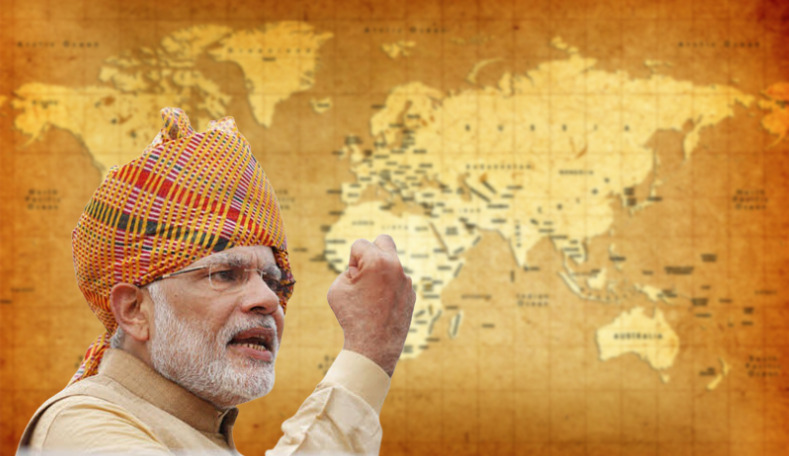In 2014, Russia annexed Crimea – which until then, was Ukrainian territory. Vladimir Putin’s decision to go for an annexation of Crimea – which secured Russian control over the port city of Sevastopol – marked the beginning of a post-Soviet Russia’s Eastern European exploits. The annexation of Crimea was no small feat. It involved a fairly significant military operation and led to Moscow being pounded with sanctions by the West. Eight years since the dynamics have changed. Russia has grown immune to sanctions, has learnt how to comfortably live with them, and has also come out of its global isolation cocoon.
Syria, Libya and the larger Russian involvement across Africa; coupled with the consolidation of influence in Central Asia; strengthening of ties with India and forging an alliance with China – Russia has been a busy country under Vladimir Putin.
Expectations from India
When Russia annexed Crimea, India did not matter. What India said or did; who it supported; how it voted at the United Nations – none of it mattered. India’s say in global matters was not given much heft by the West. That was eight years ago.
Ever since everyone is trying to win India over. The United States wants India to dump Russia and speak in open favour of Ukraine. Europe wants the same.
Ukraine is pleading with India to step in and play the role of a peacemaker between Kyiv and Moscow.
Russia is trying hard to ensure that it does not lose favour with India and that the Modi government keeps subtly supporting Moscow in its endeavour to secure its national interests. Vladimir Putin made his first phone call after declaring war on Ukraine to Prime Minister Modi to ensure India remains on Russia’s side.
India abstained from voting on UNSC resolution that sought to initiate action against Russia for its aggression in Ukraine. So, the West has failed to impress India, and New Delhi has decided to subtly support Russia in its time of need.
Expectations from India are high. The West wants India on its side, as that will help strengthen its case against Russia. The United States-led world order, including NATO, want to unite all major democracies against Russia. Such an endeavour will forever remain a dream until India joins the anti-Russia chorus.
India Under PM Modi
Under the leadership of Prime Minister Narendra Modi, India has emerged as a power to be reckoned with. India’s foreign policy and PM Modi’s outreach with all major countries and their leaders in the past eight years has solidified New Delhi’s standing on the world stage.
PM Modi has been working to make India a $5 trillion economy, he is building a robust defence manufacturing industry, and is leading India’s efforts to become self-sufficient. This has led to India commanding massive respectability across the world. Today, India is a power whose voice matters. Therefore, the West wants India on its corner – to put a united and formidable front against Russia.
Meanwhile, the West recognises that if there is one power that can help stop the violence in Ukraine, it is India. New Delhi can influence Moscow. PM Modi shares a personal relationship with Vladimir Putin. As such, the Kremlin cannot ignore India’s advice. India knows this, which is why it has in both direct and indirect talks with the Kremlin called for an immediate cessation of violence.
Read more: The reason why Vladimir Putin was forced to dial PM Narendra Modi’s number
New Delhi enjoys special relationships with all major world powers, especially the United States, United Kingdom, France, and Germany. So, India can play a big role in bringing a sense of normalcy between Russia and the West once Moscow achieves its objectives in Ukraine.
Russia would not want to sour its relations by neglecting India’s concerns regarding the Ukrainian crisis. India, meanwhile, will rethink its position if its advice is not paid heed to by Moscow. That is the line that PM Modi’s government has drawn. So, while the West desperately hopes for India to join its ranks, and while Russia assumes that India will always be in its corner – New Delhi is pursuing a time-bound, strategic and principled line vis-à-vis Ukraine.
